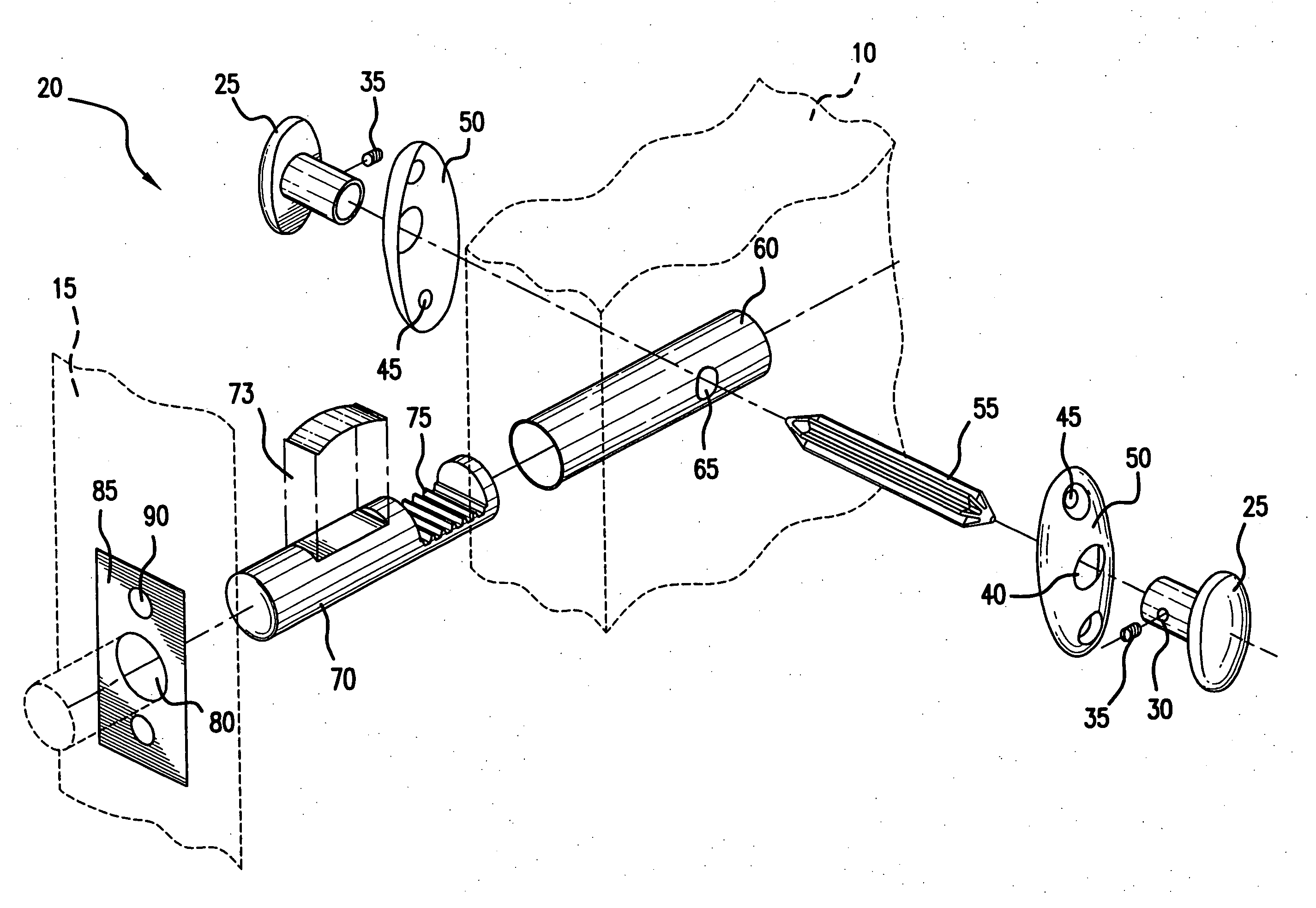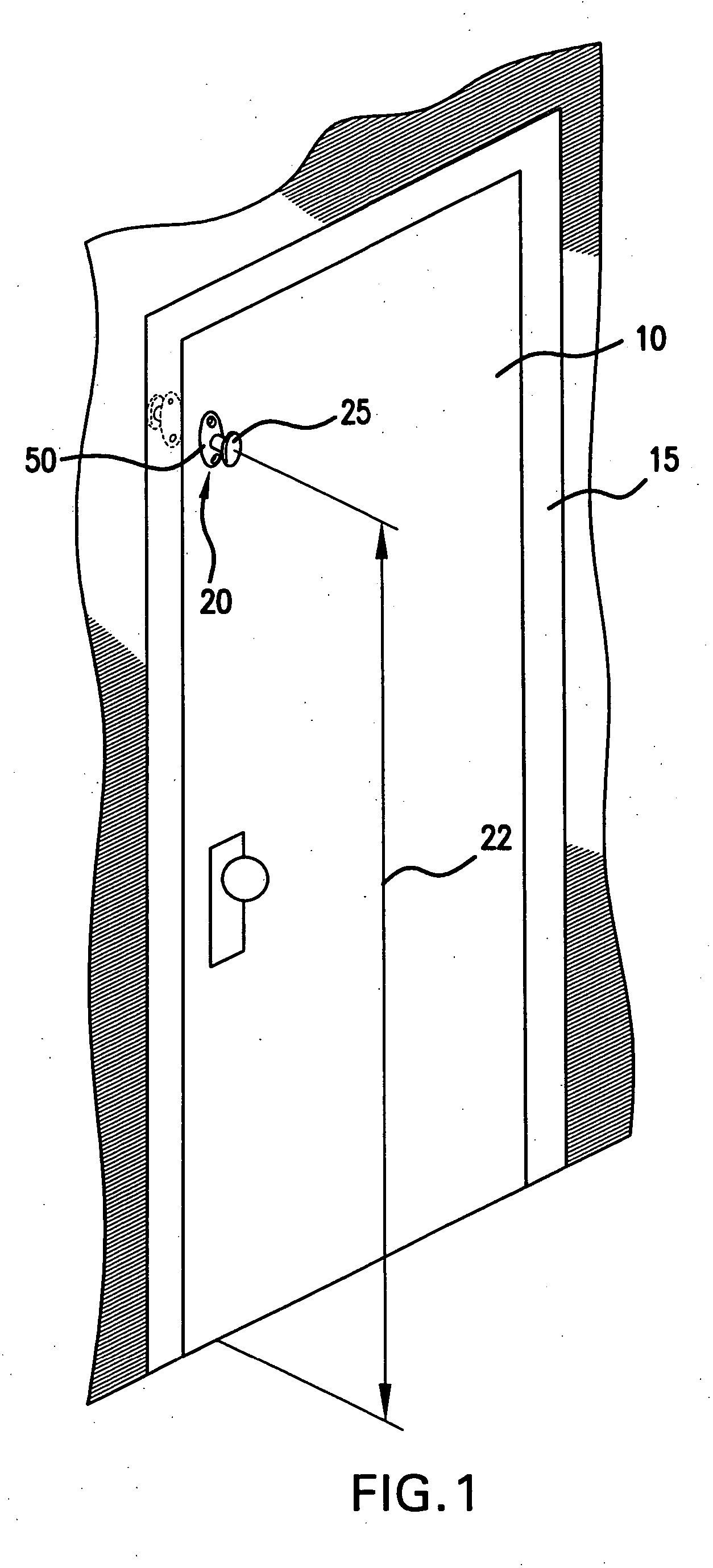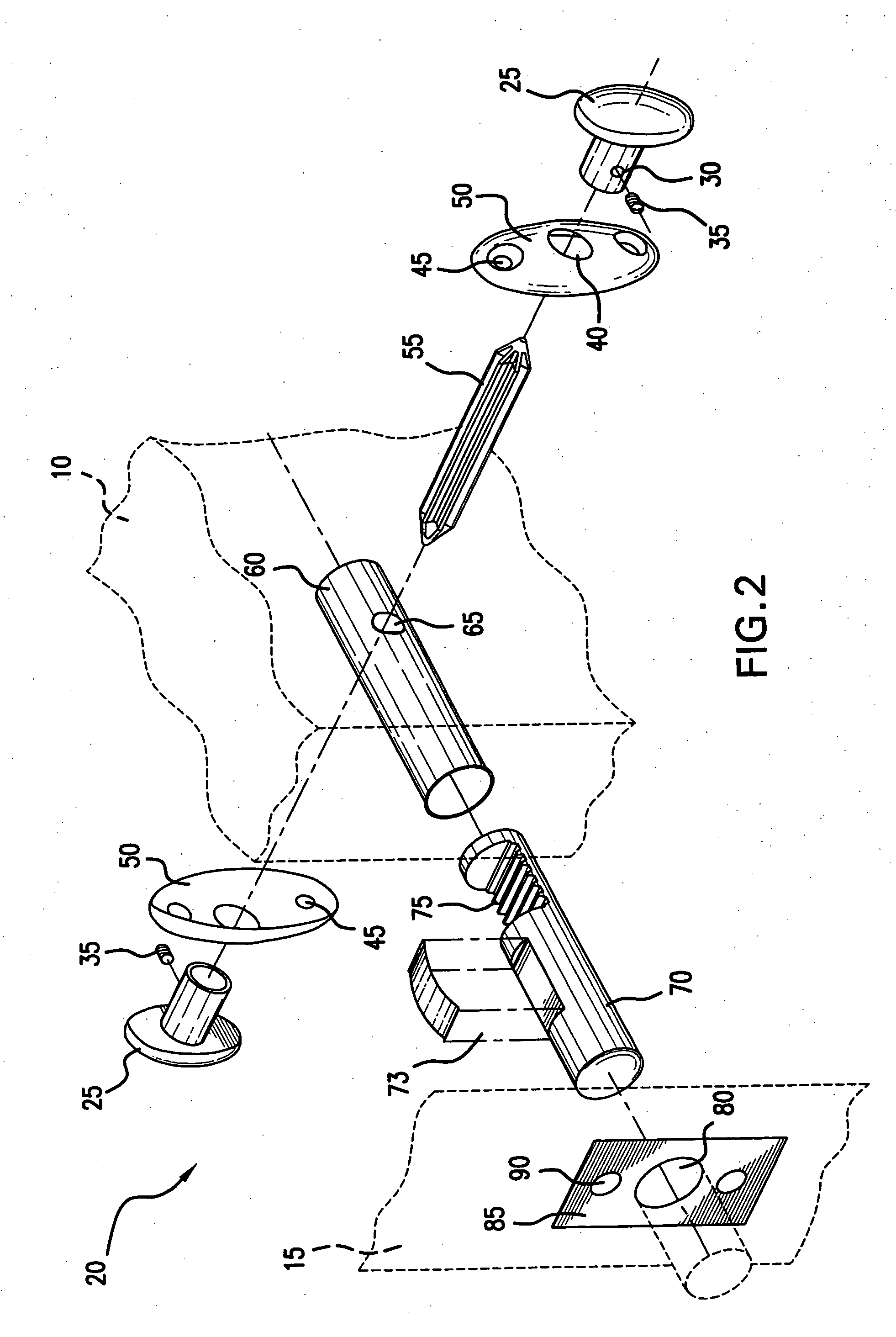Keyless lock for doors
a keyless lock and key technology, applied in the field of mechanical engineering and child safety, can solve the problems of lock also presenting a safety hazard, easy misplacement, and inconvenience for everyone in the hom
- Summary
- Abstract
- Description
- Claims
- Application Information
AI Technical Summary
Benefits of technology
Problems solved by technology
Method used
Image
Examples
Embodiment Construction
[0018] In brief overview, referring to FIG. 1, a first exemplary embodiment of a keyless door lock 20 is shown mounted in a hinged door 10. An operator locks and unlocks the door by manipulating a means for locking and unlocking the lock. The means for locking and unlocking the lock can be any graspable implement, such as a handle or a knob. In the embodiment shown in FIGS. 1-10, the means for locking and unlocking the lock is knob 25, and to lock and unlock the door, one simply grasps the knob 25 and turns it in the appropriate direction. The lock 20 can include one means for locking and unlocking the lock (e.g., knob 25) mounted to one side of the door 10, but preferably includes a first and a second means for unlocking the lock (e.g., two knobs 25), the first means mounted to the interior surface of the door and the second means mounted to the exterior surface of the door 10. Having first and second means for unlocking and locking the lock is preferable because this allows the lo...
PUM
 Login to View More
Login to View More Abstract
Description
Claims
Application Information
 Login to View More
Login to View More - R&D
- Intellectual Property
- Life Sciences
- Materials
- Tech Scout
- Unparalleled Data Quality
- Higher Quality Content
- 60% Fewer Hallucinations
Browse by: Latest US Patents, China's latest patents, Technical Efficacy Thesaurus, Application Domain, Technology Topic, Popular Technical Reports.
© 2025 PatSnap. All rights reserved.Legal|Privacy policy|Modern Slavery Act Transparency Statement|Sitemap|About US| Contact US: help@patsnap.com



